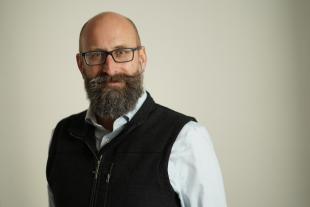Email:
Telephone:
Location:
Personal Page:
Engineering Discipline:
- Electronics and Electrical Engineering
Biography:
Prof Timothy Drysdale is the Chair of Technology Enhanced Science Education and Director of Strategic Digital Education in the School of Engineering. He is also seconded part-time to the University's Curriculum Transformation Project focusing on digital innovation for experiential learning. His main research activity is in Engineering Education (Key Research Area 10 for the School), where he leads the Remote Laboratories group. He and his team have developed an entirely new infrastructure and approach for operating online remote laboratories on traditional campuses (practable.io), winning international awards from the Global Online Laboratories Consortium (Remote Experiment Award 2024) and the Association for Learning Technology / Jisc Award for Digital Transformation in 2023. Remote laboratories allow students to access real equipment, in real-time, from almost any location. The aesthetically-pleasing experiments are installed in the foyers of buildings, giving the campus a science-museum feel, with every square metre of foyer space saving 150 square metres of teaching laboratory space. Practable.io experiments, infrastructure, and expertise are available via subscription, purchase, or consultancy through Edinburgh Innovations (contact Tim in the first instance). Prior to 2018, he was a Senior Lecturer in Engineering at the Open University, where he was the founding director and lead developer of the £3M openEngineering Laboratory, their first large-scale real-time remote laboratory, which attracted awards has attracted educational awards from the Queen's Anniversary Prize (2024), Times Higher Education (Outstanding Digital Innovation, 2017), The Guardian (Teaching Excellence, 2018), Global Online Labs Consortium (Remote Experiment Award, 2018), and National Instruments (Engineering Impact Award for Education in Europe, Middle East, Asia Region 2018, and the overall Global Award in 2019). His discipline background is in electronics and electromagnetics, including terahertz metamaterial design, surface wave antennas for cubesats and orbital angular momentum radio links. He is Associate Editor of the IET journal Microwave Antennas and Propagation.
Academic Qualifications:
PGCert Academic Practice, Unviersity of Glasgow, 2007
PhD Passive Devices for Terahertz Frequencies, University of Canterbury (NZ) 2004
B.Eng (First Class, University Prize) in Electronics and Electrical Engineering, University of Canterbury (NZ) 1998
Professional Qualifications and Memberships:
Senior Fellow of the Higher Education Academy
Member IEEE
Teaching:
Tim's Remote Laboratories Group provides remote experiments used on engineering courses ranging from 1st-5th year and up to 450 students in size.
Research Interests:
My research interests are primarily focused on technology enhanced approaches to teaching engineering education. What can technology do for us, and what should it do? Building on my background in large-scale automated remote laboratories, I'm now developing a vision that encompasses all forms of non-traditional laboratory work (remote/virtual/simulated laboratories) so that they can be used in any course, whether or not the course organiser and teaching team are an expert in digital teaching tools. Non-Traditional Practical Work opens the door to new pedagogical approaches that improve the engagement of the learner with the concepts, develop enquiry skills, while offering instant automated feedback, authentic assessment, and student co-creation. Recent work in my research group has focused on analysing the rich data stream that digitally-mediated activities provide, for the benefit of the learners, e.g. providing formative feedback to remote laboratory users that doubled task completion.
Specialities:
Non-Traditional Practical Work
Remote laboratories
Electromagnetics
Further Information:
Teaching Matters Blog:
https://www.teaching-matters-blog.ed.ac.uk/generative-artificial-intelligence-ban-or-embrace/
https://www.teaching-matters-blog.ed.ac.uk/assessment-feedback-and-their-digital-futures/
https://www.teaching-matters-blog.ed.ac.uk/its-too-risky-to-play-it-safe-with-digital-innovation/
Appearances in the School News:
https://www.eng.ed.ac.uk/about/news/20181120/tim-drysdale-recognised-pioneering-remote-lab-teaching



